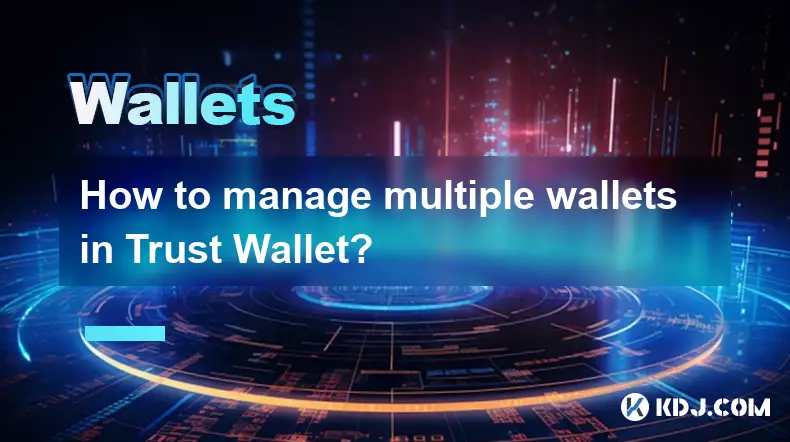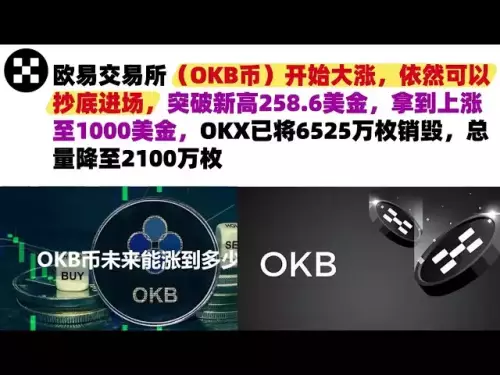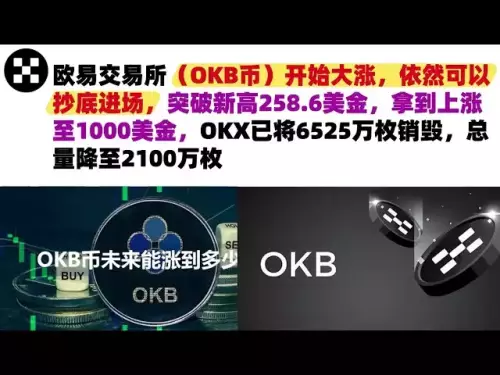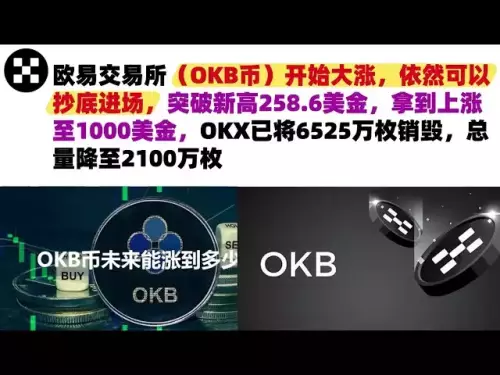-
 Bitcoin
Bitcoin $108500
-0.77% -
 Ethereum
Ethereum $4355
0.48% -
 Tether USDt
Tether USDt $1.000
-0.01% -
 XRP
XRP $2.792
-2.16% -
 BNB
BNB $854.3
-0.50% -
 Solana
Solana $199.3
-4.98% -
 USDC
USDC $0.9999
0.01% -
 Dogecoin
Dogecoin $0.2151
-0.04% -
 TRON
TRON $0.3388
0.55% -
 Cardano
Cardano $0.8131
-1.96% -
 Chainlink
Chainlink $23.14
-1.15% -
 Hyperliquid
Hyperliquid $43.70
-2.54% -
 Ethena USDe
Ethena USDe $1.001
0.01% -
 Sui
Sui $3.263
-1.87% -
 Stellar
Stellar $0.3547
-1.64% -
 Bitcoin Cash
Bitcoin Cash $535.1
0.36% -
 Cronos
Cronos $0.3115
5.81% -
 Avalanche
Avalanche $23.58
-0.90% -
 Hedera
Hedera $0.2229
-2.17% -
 UNUS SED LEO
UNUS SED LEO $9.499
0.52% -
 Litecoin
Litecoin $109.9
-0.27% -
 Toncoin
Toncoin $3.119
1.83% -
 Shiba Inu
Shiba Inu $0.00001235
1.29% -
 Uniswap
Uniswap $9.695
1.19% -
 Polkadot
Polkadot $3.757
-1.59% -
 Dai
Dai $0.0000
0.00% -
 Bitget Token
Bitget Token $4.526
-0.62% -
 Monero
Monero $260.5
-1.09% -
 Aave
Aave $313.9
1.18% -
 Ethena
Ethena $0.6563
1.13%
How to track your crypto profits and losses in Trust Wallet?
Trust Wallet doesn’t track profits—use third-party tools like CoinTracker or manual spreadsheets to log transactions and calculate gains accurately.
Aug 30, 2025 at 07:04 am

Understanding Crypto Profit Tracking in Trust Wallet
1. Trust Wallet does not natively provide a profit and loss calculator within its interface. Users must rely on external methods to assess gains or losses from their crypto holdings. The wallet displays real-time balances and asset values based on current market prices, but historical cost basis and transaction tracking require manual oversight or third-party tools.
2. Every buy, sell, swap, or transfer must be recorded to calculate accurate profits. Without tracking the purchase price, date, and quantity of each transaction, it becomes impossible to determine whether a sale results in a gain or loss. This is especially critical for users who frequently trade across multiple chains supported by Trust Wallet.
3. Manually logging transactions in a spreadsheet allows full control over profit calculations. Include columns for date, asset, amount, transaction type, price in fiat, gas fees, and total cost. This method ensures transparency and helps avoid errors during tax reporting or portfolio reviews.
4. When swapping tokens within Trust Wallet using the integrated DEX aggregator, each swap is a taxable event in many jurisdictions. These transactions must be recorded with the exact output value at the time of the swap. Failure to capture this data immediately may lead to inaccurate profit assessments later.
5. Realized gains occur when a crypto asset is sold or swapped for another asset or fiat. Unrealized gains refer to the current value of holdings that have not been sold. Trust Wallet shows unrealized gains through price changes in the portfolio view, but does not break down cost basis or holding periods.
Using Third-Party Tools to Sync with Trust Wallet
1. Several blockchain analytics platforms like CoinTracker, Koinly, and Zapper support wallet address imports, including Trust Wallet’s connected addresses. By linking your public wallet address, these tools automatically pull transaction history across multiple networks such as Ethereum, Binance Smart Chain, and Polygon.
2. Automated tracking tools reduce human error and save time when calculating capital gains. They assign timestamps, prices, and fiat values to each transaction using historical market data. This is particularly useful for users who conduct frequent swaps or yield farming activities accessible through Trust Wallet’s dApp browser.
3. Integration typically involves copying your wallet’s public address from Trust Wallet and pasting it into the analytics platform. No private keys are required, ensuring security while enabling full transaction visibility. Some platforms also support CSV imports for wallets with complex histories.
4. These tools categorize transactions by type—such as buy, sell, receive, or internal transfer—and apply accounting methods like FIFO (First In, First Out) or HIFO (Highest In, First Out) to compute gains. Users can switch methods based on regional tax regulations.
5. Fees paid in native chain tokens (e.g., BNB for BSC, MATIC for Polygon) are also accounted for as deductible costs. Accurate fee tracking improves the precision of net profit calculations and ensures compliance with financial reporting standards.
Leveraging Tax Reporting Features
1. Platforms like Koinly and TokenTax generate tax reports based on imported Trust Wallet data. These reports include detailed breakdowns of short-term and long-term capital gains, income from airdrops or staking, and total disposals throughout the fiscal year.
2. Tax authorities in various countries require disclosure of crypto gains. By using verified transaction logs from synced tools, users can submit accurate reports without relying on memory or incomplete records. Some platforms even support direct export to TurboTax or manual forms.
3. Staking rewards and liquidity pool earnings accessed via Trust Wallet’s dApp browser are treated as income. These must be valued in fiat at the time of receipt and later assessed for capital gains upon disposal. Automated tools capture these events directly from the blockchain.
4. Accurate reporting prevents penalties and audits. Inconsistent or missing data raises red flags, especially when large transfers are detected on-chain. Regular syncing ensures no transaction is overlooked, including those from decentralized exchanges used through Trust Wallet’s browser.
5. Users should review generated reports carefully before submission. While automation improves efficiency, manual verification of high-value transactions ensures data integrity, particularly when dealing with cross-chain movements or failed transactions that may distort cost basis.
Frequently Asked Questions
Can Trust Wallet show my total profit from all trades?Trust Wallet does not display overall profit or loss. It shows current portfolio value and asset performance based on market prices, but does not calculate cost basis or historical returns across transactions.
How do I export my transaction history from Trust Wallet?Trust Wallet does not offer a direct export feature. You must use your wallet address with blockchain explorers or connect it to portfolio trackers like Zerion or CoinGecko to retrieve transaction data.
Are swaps in Trust Wallet considered taxable events?Yes, swapping one cryptocurrency for another is generally treated as a disposal and may trigger a capital gain or loss depending on the change in value since acquisition.
Does connecting my wallet to third-party apps compromise security?No, linking your public address to analytics platforms does not expose private keys or give control over funds. Always ensure you are using official websites and never share seed phrases or sign malicious transactions.
Disclaimer:info@kdj.com
The information provided is not trading advice. kdj.com does not assume any responsibility for any investments made based on the information provided in this article. Cryptocurrencies are highly volatile and it is highly recommended that you invest with caution after thorough research!
If you believe that the content used on this website infringes your copyright, please contact us immediately (info@kdj.com) and we will delete it promptly.
- Bitcoin, Trump & Trading: Decoding the Crypto Buzz
- 2025-08-30 21:25:13
- PENDLE Price: Buy Signal or Bad Move? A NYC Trader's Take
- 2025-08-30 21:25:13
- Avocado Coin Hack: Is Your Avocado Ripe Enough?
- 2025-08-30 21:30:13
- Solana, Ethereum, and DeFi Momentum: A NYC Perspective
- 2025-08-30 21:30:13
- Stablecoins Soar: Regulatory Clarity Fuels $44 Billion Surge
- 2025-08-30 21:45:14
- Pi Network Token Price Jump: What's Fueling the Surge?
- 2025-08-30 21:45:14
Related knowledge

How to use Trust Wallet's built-in DEX?
Aug 29,2025 at 07:28am
Understanding Trust Wallet’s Built-in DEX1. Trust Wallet integrates a decentralized exchange (DEX) directly within its mobile application, allowing us...

How to manage multiple wallets in Trust Wallet?
Aug 30,2025 at 04:45am
Understanding Wallet Management in Trust Wallet1. Trust Wallet supports a wide range of cryptocurrencies and tokens, allowing users to manage multiple...

How to avoid slippage when swapping on Trust Wallet?
Aug 29,2025 at 03:01am
Understanding Slippage in Decentralized Exchanges1. Slippage occurs when the price of a cryptocurrency changes between the time a transaction is initi...

How to buy altcoins on Trust Wallet?
Aug 29,2025 at 11:36pm
Understanding Trust Wallet and Altcoin Purchases1. Trust Wallet is a non-custodial cryptocurrency wallet that supports a wide range of altcoins and bl...

How to participate in an ICO with Trust Wallet?
Aug 30,2025 at 04:36pm
Understanding ICOs and Trust Wallet Compatibility1. Initial Coin Offerings (ICOs) are fundraising mechanisms used by blockchain projects to raise capi...

How to interact with smart contracts on Trust Wallet?
Aug 29,2025 at 01:28am
Understanding Smart Contracts and Trust Wallet Compatibility1. Smart contracts are self-executing agreements with the terms directly written into code...

How to use Trust Wallet's built-in DEX?
Aug 29,2025 at 07:28am
Understanding Trust Wallet’s Built-in DEX1. Trust Wallet integrates a decentralized exchange (DEX) directly within its mobile application, allowing us...

How to manage multiple wallets in Trust Wallet?
Aug 30,2025 at 04:45am
Understanding Wallet Management in Trust Wallet1. Trust Wallet supports a wide range of cryptocurrencies and tokens, allowing users to manage multiple...

How to avoid slippage when swapping on Trust Wallet?
Aug 29,2025 at 03:01am
Understanding Slippage in Decentralized Exchanges1. Slippage occurs when the price of a cryptocurrency changes between the time a transaction is initi...

How to buy altcoins on Trust Wallet?
Aug 29,2025 at 11:36pm
Understanding Trust Wallet and Altcoin Purchases1. Trust Wallet is a non-custodial cryptocurrency wallet that supports a wide range of altcoins and bl...

How to participate in an ICO with Trust Wallet?
Aug 30,2025 at 04:36pm
Understanding ICOs and Trust Wallet Compatibility1. Initial Coin Offerings (ICOs) are fundraising mechanisms used by blockchain projects to raise capi...

How to interact with smart contracts on Trust Wallet?
Aug 29,2025 at 01:28am
Understanding Smart Contracts and Trust Wallet Compatibility1. Smart contracts are self-executing agreements with the terms directly written into code...
See all articles

























































































